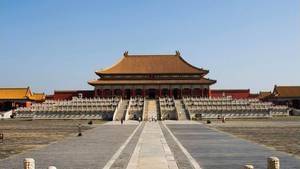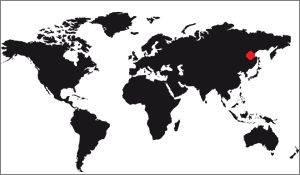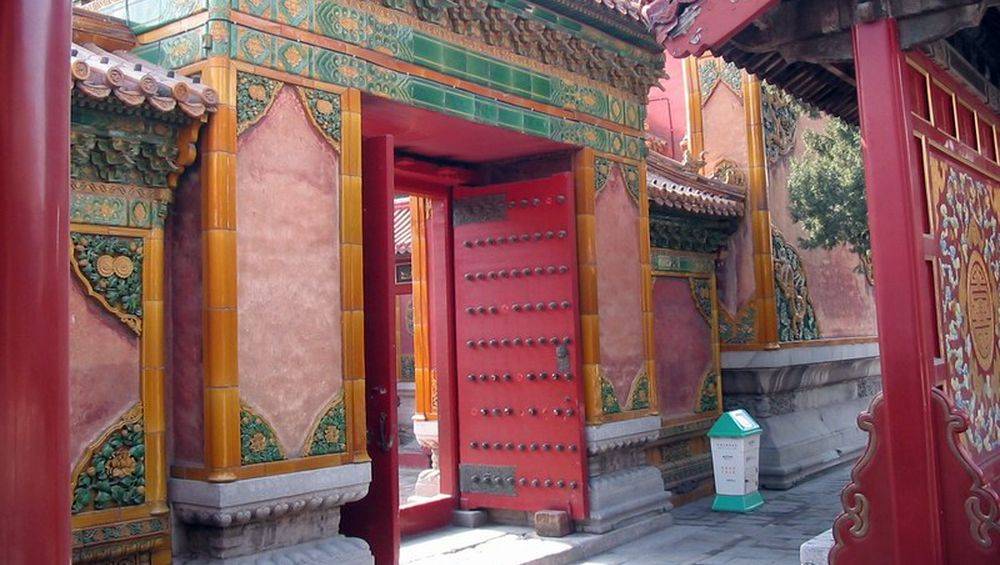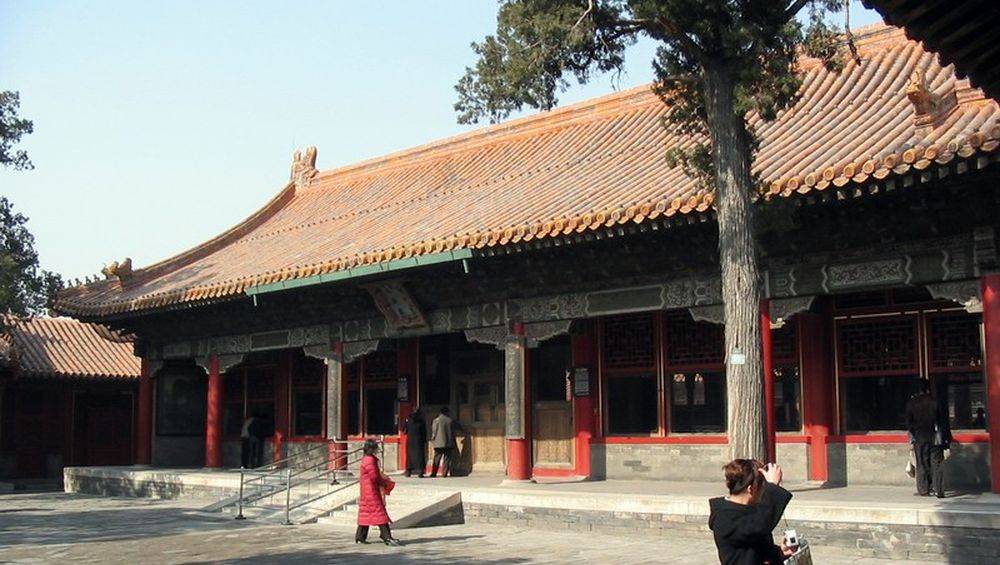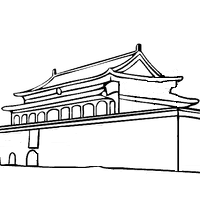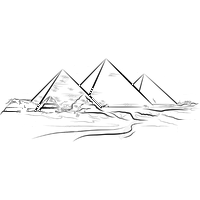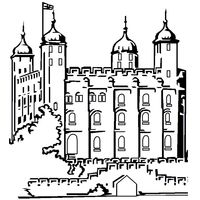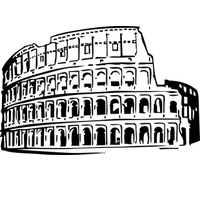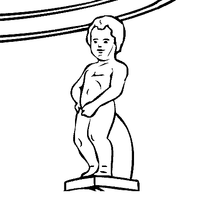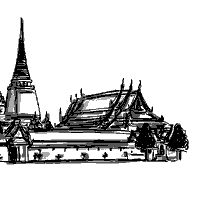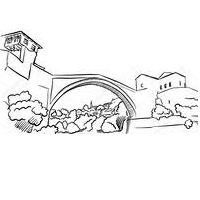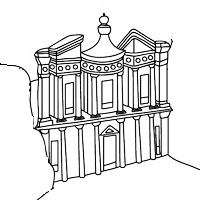Hall of the supreme principle (Taiji dian)
Until the end of the Ming Dynasty (1368-1644) the hall of the supreme principle was the residence of spouses and concubines. At the beginning of the Qing Dynasty (1644-1911), it was renovated and reunited with the palace of the eternal spring (Changchun gong) to form a large ensemble. It was at this time that his current name was chosen because this place was called the Palace of Young Night (Weiyanggong) under the Ming. At the end of the Qing Dynasty Empress Dowager Cixi and Longyu resided here. Moreover, several empresses lived there, including Yu, Tongzhi's wife.
This pavilion is visitable, it contains several interesting elements including two porcelain elephants (These are symbols of peace) each supporting a vase in which one deposited seeds. Here again it was a symbolic gesture intended to attract the good auguries for the future harvests. These two elephants surround the imperial throne, which is also one of the interesting pieces of furniture. There are also several lounges and a bedroom.
This palace is part of six Western palaces, in the inner courtyard.
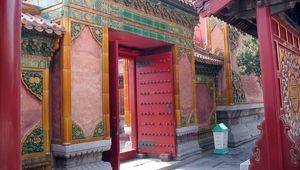
Hall of the supreme principle
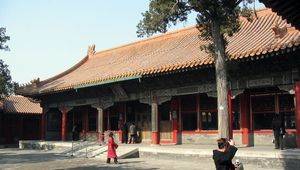
Hall of the supreme principle
See too:
Back to the list of the pavilions of the forbidden city




